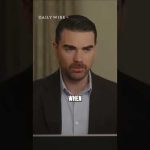A judge has ruled that Mahmoud Khalil, a leader of anti-Israel protests at Columbia University, can be deported from the United States. The decision came after the Trump administration argued his actions harmed American foreign policy and created unsafe conditions for Jewish students. Supporters of the ruling say it’s a win for national security and the rule of law.
Khalil, a green card holder, was arrested by immigration agents in March. The government claims he lied on his application by hiding past work with groups tied to Palestinian activism. Officials also say his role in campus protests fueled antisemitism, making Jewish students feel threatened. Secretary of State Marco Rubio called his actions “disruptive” and said they hurt America’s ability to fight hatred abroad.
The judge agreed Khalil’s presence risks U.S. interests, citing a rarely used law from 1952. Conservatives argue this shows the importance of enforcing immigration rules. “Coming here is a privilege, not a right,” said DHS Secretary Kristi Noem. “If you support violence or target innocent students, that privilege ends.” Critics, including liberal groups, claim the move targets free speech, but backers say it’s about protecting order.
Khalil’s lawyers called the ruling unfair, saying he’s being punished for peaceful protests. They have until April 23 to appeal. Meanwhile, the case has sparked debates about campus safety. Reports show Jewish students faced harassment during the Columbia protests, with some blocked from entering buildings. Conservatives say schools must crack down on chaos, not reward it.
The Trump administration has vowed to deport others who break visa rules or promote extremism. This case could set a precedent for handling foreign activists. Supporters cheer the tough stance, arguing it defends both national security and campus values. As one commentator put it, “You don’t get to demand loyalty to America while tearing down what it stands for.”
Khalil remains in a Louisiana detention center, far from his pregnant wife in New York. His supporters call it a political stunt, but immigration officials say location doesn’t change the facts. The White House insists the focus is on fairness: “Follow the law, or face consequences.”
The ruling highlights growing tensions over free speech versus public safety. While liberals warn of censorship, conservatives stress accountability. “Speech isn’t free if it silences others,” said Rubio. The case now moves to higher courts, where the balance between rights and security will keep being tested.
For now, the message is clear: The U.S. won’t tolerate foreign nationals who abuse their visas to spread division. As the 2024 election approaches, expect more actions like this—prioritizing America’s interests above activist agendas.




